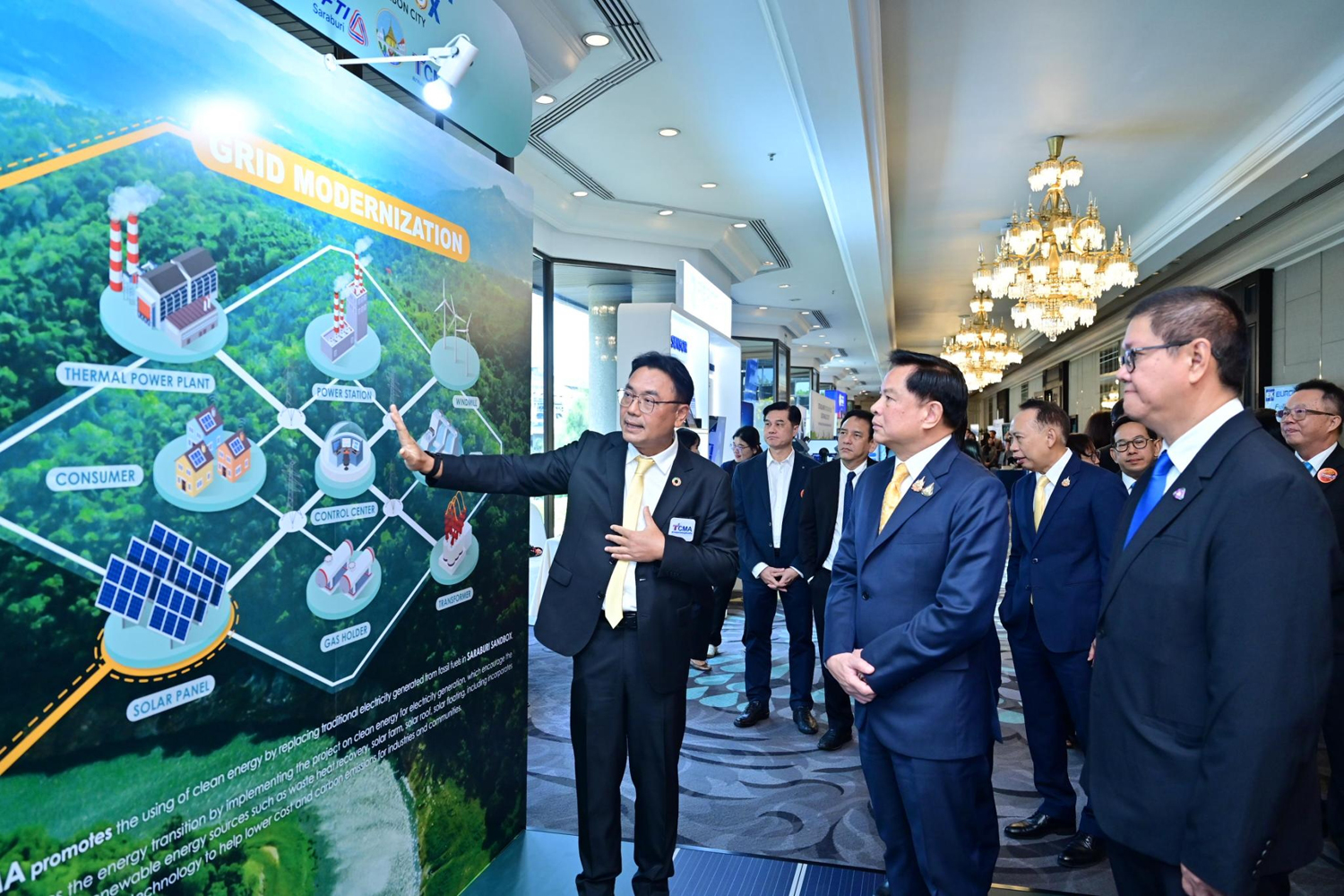
TCMA Advocates for Speedy Green Energy Transition in Cement Industry

The Thai Cement Manufacturers Association (TCMA) is urging the government to unlock regulations and secure green financing to speed up the cement sector’s shift towards sustainable energy.
Promoting the “3C” approach (Collaborative Mindset, Collaborative Action, Collaborative Value), TCMA aims to push forward the “SARABURI SANDBOX LOW CARBON CITY” project, positioning Thailand’s cement industry for global competitiveness through green initiatives.
Speaking at the Federation of Thai Industries’ Energy Symposium 2024, TCMA Chairman, Dr Chana Poomee, discussed the cement sector’s progress under the Thailand 2050 Net Zero Cement and Concrete Roadmap, approved by the Global Cement and Concrete Association (GCCA).
While the transition to green energy is advancing, with major initiatives like the SARABURI SANDBOX underway, Dr Chana emphasised that further regulatory support is crucial to fully realise its potential.

Accelerating Clean Energy Initiatives
Dr Chana highlighted that the SARABURI SANDBOX, a collaboration between public, private, and local communities, is tackling climate action in Saraburi Province. A notable initiative involves installing solar panels at Saraburi Provincial Hall’s parking lot (Solar Carport) to test Grid Modernisation systems designed to advance renewable energy infrastructure.
TCMA is also supporting clean energy projects within the cement sector, utilising biomass, solar power, and refuse-derived fuel (RDF) while promoting low-carbon hydraulic cement for construction. By 2025, TCMA plans to eliminate high-carbon cement production nationwide.

Overcoming Regulatory Barriers
A study from Princeton University shows Saraburi’s potential to generate up to 100,000 megawatts of green energy, though the province’s current energy demand is only 30,000 megawatts.
TCMA members already use renewable energy from biomass, RDF, and Napier grass for 30% of their energy consumption, but government assistance is essential to unlock regulations allowing direct trading of clean energy between producers and consumers. This would enable Saraburi to reduce waste by converting it into renewable energy, cutting costs.
Deputy Prime Minister and Minister of Energy, Mr Pirapan Salirathavibhaga, noted that the Ministry of Energy is modernising regulations through the “Remove, Reduce, Release, Regenerate” strategy, aiming to update laws that currently impede clean energy production in the industrial sector. The goal is to empower the industry to generate its own energy, reducing costs and improving energy security.
Strengthening Collaboration and International Connectivity
Since its launch on 15 August 2023, the SARABURI SANDBOX has shown progress through its Public-Private-People (PPP) collaboration model. The Saraburi Provincial Governor, supported by the Federation of Thai Industries-Saraburi, and TCMA, has helped the project achieve milestones through domestic and global partnerships.
Dr Chana explained that this collaborative ecosystem is paving the way for new, innovative initiatives, setting a model that many agencies have recognised.
TCMA is expanding the SARABURI SANDBOX through global cooperation. The Thai cement industry has been represented at global forums, including the GCCA CEO Gathering and Climate Week New York City 2024.
The SARABURI SANDBOX was also accepted into the World Economic Forum’s Transitioning Industrial Clusters Initiative, becoming Thailand’s first, ASEAN’s third, and the world’s 21st cluster in the initiative. Continued collaboration with GCCA and updates at global events like COP27 are further driving progress.
“The Thailand 2050 Net Zero Cement and Concrete Roadmap offers strategic guidance in policy, technology, and funding, accelerating the cement industry’s transition to green energy and enhancing its global competitiveness,” concluded Dr Chana.
Search
Categories
Latest Post


Thai Property Developers Call for Government Action as Foreign Investments Rise

Bolt’s Impact on Urban Mobility and Economic Growth in Thailand

